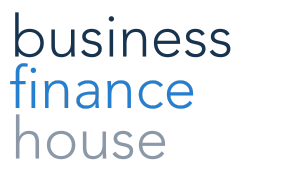When you’re applying for a business loan, one of the first choices you’ll face is whether to go with a fixed or variable interest rate. It might seem like a small detail at first but it can make a big difference to your monthly repayments, your long-term costs and how easily you can manage your cash flow. If you’ve been scratching your head over which one makes more sense, don’t worry, you’re not alone. Let’s break down and explain how each option works to help you figure out which is better for your business needs.
What’s the Difference Between Fixed and Variable Rate Loans?
Fixed rate business loan
Your interest rate stays the same from day one to the end of the loan term. That means your monthly repayments are predictable, no matter what’s happening in the wider economy.
Variable rate business loan
The interest rate can go up or down over time. It usually follows the Bank of England base rate or market trends. So, your repayments could increase or decrease depending on how the rates move.
Why Choose a Fixed Rate Business Loan?
Fixed rates are all about stability. You’ll know exactly what you’re paying each month, which makes it much easier to plan ahead, especially if you’ve got tight margins or limited wiggle room in your cash flow.
Pros:
- Your monthly payments won’t change
- Easier to plan and budget for
- Peace of mind if interest rates go up
Cons:
- The initial rate is often a bit higher than variable
- You won’t benefit if interest rates drop during your term
Fixed rate loans are especially popular for longer-term borrowing or for businesses who just want to keep things simple and steady.

Why Choose a Variable Rate Business Loan?
If your business is in a growth phase or you’re comfortable with a bit more financial flexibility, a variable rate might make more sense. These loans often start with a lower interest rate, which can save you money early on.
Pros:
- Lower initial rate (in many cases)
- Potential to save if market rates go down
- May come with more flexible repayment options
Cons:
- Monthly payments can change unexpectedly
- Makes budgeting a bit trickier
- Could cost you more in the long run if interest rates rise
Variable rates are great for short-term business loans or for businesses that can adapt quickly and are comfortable riding out some fluctuations.
Which One’s Right for You?
Here are a few questions to ask yourself:
- Do I need predictable monthly payments to help with budgeting?
- Can my business handle fluctuations if interest rates increase?
- Am I borrowing for a long-term investment or a short-term opportunity?
- Do I think interest rates will rise or fall during my loan term?
If you value peace of mind and consistency, fixed business loans might be the way to go. But if you’re open to taking advantage of market dips and you have wiggle room in your budget, variable business loans could save you some money, as long as you’re comfortable with the risk.
A Quick Comparison Table
| Feature | Fixed Rate Business Loan | Variable Rate Business Loan |
| Interest rate | Stays the same | Can change over time |
| Monthly repayments | Fixed | May increase or decrease |
| Best for | Budgeting, long-term loans | Short-term flexibility |
| Risk level | Low | Higher (depends on market) |
| Potential savings | If rates rise | If rates fall |
When comparing fixed vs. variable rate business loans, there’s no one-size-fits-all answer. It really comes down to your business’s financial situation, risk tolerance and how much certainty you want when it comes to your repayments.
At Business Finance House, we help UK businesses compare funding options from over 80 trusted lenders. Whether you’re looking for fixed stability or variable flexibility, we’ll help you find a loan that genuinely works for you. Get in touch with us and let’s find the right finance solution for your future.






